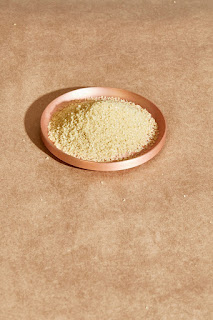What Happens to Your Body When You Stop Eating Sugar -
 |
| pc: wikipedia |
PHOTOGRAPHY BY CODY GUILFOYLE
After an Hour
 |
| PHOTOGRAPHY BY CODY GUILFOYLE |
Expect withdrawals, even after a few hours. “Sugar is addictive and activates a dopamine response in the reward center of the brain, like a drug,” says Wolfe. Depending on the amount of sugar you consume daily, you might experience varying drops in blood sugar levels, sweating, shaking, irritable moodiness, hunger, and even depression.
Gottfried suggests fighting through these symptoms by consuming fresh vegetables with fiber, anti-inflammatory protein sources, and healthy fats.
After a Day
The days after you’ve stopped consuming sugar are perhaps the hardest. “You may have withdrawal-like symptoms including headaches and a drop in energy levels,” says Gottfried. You’ll probably even have some strong cravings for something sweet.
But already, your body is beginning to heal itself. “Sugar feeds harmful microorganisms, such as candida and fungus (athlete’s foot), so you may notice an immediate change in these or related conditions,” says Wolfe. Those microorganism suckers are hungry though—they’ll be craving sugar—which will make you sequentially hungry for sugar, but fight the cravings and push through.
After a Week
This is where the magic starts kicking in. Your body will quickly start to repair itself once sugar is out of the way, starting with improvements in insulin levels and inflammatory responses. “Research has shown that within 72 hours, you can repair your insulin receptors,” says Gottfried. As insulin levels begin to stabilize, other hormones (like those involved in fat storage) will return to normal levels. Another noticeable difference? Skin clarity and less puffiness in the face, says Wolfe. Moments of low energy can be perfectly normal still too.
After a Month
“After a month, you’ll realize what sugar has been doing to you, namely: increasing cravings, causing weight gain, yeast infections, amplifying inflammation, etc.,” says Wolfe. You’ll notice a lot of these issues, as well as cravings, beginning to disappear.
You’ll also have stable blood sugar levels, improved mental clarity with zero brain fog, natural weight loss, and improved gut health. “Too much sugar in your diet can cause an overgrowth of bad bacteria in your gut (dysbiosis),” says Gottfried. “A healthy gut reduces inflammation in your body and your overall risk for many health problems.”
After Six Months
Imagine this: “You will be so far away from the habit of eating sugar after six months that you will not only not want it, but you won’t even be able to look at it,” says Wolfe. (Talk about #goals.)
Gottfried also says that when blood sugar levels are stabilized, you’ll find weight stays off, especially that stubborn belly fat. More importantly, you’ll be overall healthier. “Six months without refined sugar will decrease your risk of Type 2 diabetes, cardiovascular disease, and early aging,” she says.
After a Year
A year without processed sugar will definitely do the body good. Sugar has been linked to so many of our daily, long-term health problems, so reducing its intake will help in both small and large-scale ways.
From a surface level, skin quality and reduction of acne, irritation, and fine lines can be dramatic when sugar is eliminated from your daily diet.
On a more serious note, you will see a reduction in overall risk of preventable diseases, like diabetes, heart attacks, and strokes, and you’ll also increase your quality and length of life. “Longevity genes, like SIRT1, will be turned on and the aging gene, mTOR, turned off—thus increasing your healthspan,” says Gottfried.
.............
Lagerfeld lost 42 kg (93 lb) in 2001
****













No comments:
Post a Comment